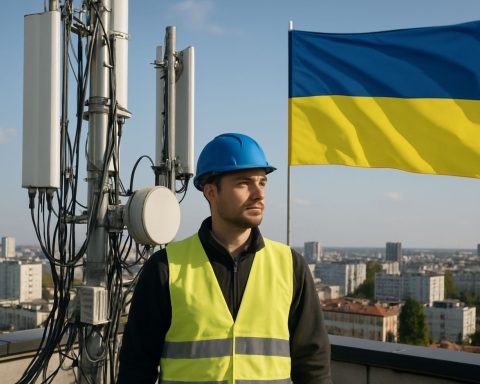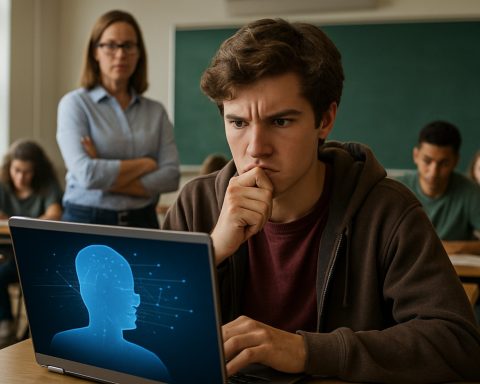- The school prioritizes cultivating active, curious learners over passive knowledge receivers.
- As Bulgaria’s second-largest private school, it integrates technology into its core curriculum to prepare students for a digital future.
- 20% of graduates receive full scholarships, supported by public-private funding, promoting accessibility and diversity.
- A student-led project exemplifies the school’s emphasis on entrepreneurship and real-world skill application.
- Assessment focuses on practical skills and real-world applications rather than rote memorization.
- Educators are envisioned as mentors who guide students in their learning and personal development.
- The school aims to inspire lifelong learning and a passion for discovery.
In a world that’s changing faster than ever, a distinct vision for education emerges from a pioneering school in Bulgaria, where the primary goal is to cultivate curious minds ready to face any challenge. Here, students are not mere recipients of knowledge, waiting passively for solutions to be handed over. Instead, they are active participants in a shared journey of discovery, innovation, and practice.
Situated as the second-largest private school community in Bulgaria, this educational institution stands out for its emphasis on integrating technology into the core of its curriculum. Recognizing the inevitability of digitalization across all future careers, the school prepares its students with comprehensive skills in key technological domains. These skills ensure their adaptability and relevance in an increasingly digital world.
Beyond its commitment to technology, the school offers a unique financial opportunity: 20% of every graduating class is granted a full scholarship. This is made possible through a funding mechanism for private schools supported by public resources, ensuring accessibility and diversity within the educational community.
One compelling story from the school’s dynamic environment involves a student who exemplified the institution’s ideals. This young individual spearheaded a software development project alongside his father. Initially seeking support, the father was persuaded to trust his son’s capability. The student not only succeeded in making the project his graduating thesis but today, the software remains integral to their family business operations. Such achievements underscore the school’s ability to inspire entrepreneurial spirit and real-world application of skills.
The school also aspires to revolutionize the education system by transforming assessment processes. Instead of valuing rote memorization, the focus is on practical skill acquisition and real-world application. The aim is to instill a love for learning by demonstrating the tangible benefits of education. To realize this vision, educators must become mentors—guides who possess the skills and wisdom to accompany students on every step of their learning pathway.
This vision demands a new breed of educators serving as role models and trusted guides in each student’s educational and personal development journey. By fostering such an environment, the school hopes to inspire not just academic success but a lifelong passion for learning and discovery.
Unlocking the Future: How a Bulgarian School is Redefining Education for the Digital Age
Introduction: Pioneering Educational Models
In an era where technological advancement is relentless, a school in Bulgaria sets itself apart by preparing students not just to adapt but to excel in a rapidly evolving world. This innovative institution serves as a beacon for educational reform, emphasizing experiential learning, technological proficiency, and financial inclusivity.
Advancements in Educational Technology
Integration of Technology: The school’s curriculum heavily infuses technology, preparing students with essential skills in coding, data analysis, and digital communication. The institution’s effort mirrors the global trend toward STEM (Science, Technology, Engineering, and Mathematics) education, crucial for future employment opportunities.
Innovative Learning Tools: Utilization of AI-driven educational tools and interactive platforms enhances personalized learning experiences. These tools can adjust content to meet individual learning paces, making education both effective and enjoyable.
Financial Accessibility and Scholarships
Scholarship Programs: A standout feature is the full scholarship opportunity granted to 20% of each graduating class. This ensures that talent, not financial capability, is the main criterion for admission—a key factor in promoting social equality and diversity in education.
Public-Private Funding Models: The school’s funding approach combines public resources with private school funding, creating a sustainable model that other educational institutions could replicate globally.
Practical Skills and Real-World Application
Project-Based Learning: Real-world projects are integral to the school’s learning approach. For instance, a student-led software development project turned into a family business tool showcases how practical application of knowledge is prioritized over traditional rote learning.
Entrepreneurial Spirit: Encouraging students to engage in entrepreneurial activities fosters critical thinking, problem-solving, and creativity—skills indispensable for the modern workplace.
Assessment and Mentorship
Rethinking Assessments: Shifting away from rote memorization toward skill acquisition and application reflects modern pedagogical philosophies, aligning with global educational shifts towards competency-based education.
Mentorship Models: Educators serve as mentors, prioritizing personalized student engagement and development. This approach tailors educational experiences to individual interests and talents, fostering an environment where students thrive academically and personally.
Future Trends and Impact
Market Forecasts: The integration of technology into education is expected to grow significantly. According to the World Economic Forum, digital education platforms could experience a compound annual growth rate of over 15% by 2025.
Industry Trends: There is a growing demand for soft skills and technical expertise. National Education Technology Plan and similar global initiatives encourage schools to adopt tech-integrated curricula to meet future workforce demands.
Challenges and Considerations
Limitations: Though the model is progressive, reliance on technology raises concerns about screen time, cybersecurity, and equitable access to digital tools. It is essential to balance technological integration with physical and mental well-being.
Controversies: The use of public funds in private education remains a debated topic. While the model in Bulgaria presents advantages, broader implementation could face opposition based on differing political and cultural viewpoints.
Actionable Recommendations
1. For Educators: Embrace digital tools to enhance teaching methods and foster a more engaging learning environment. Continuous professional development is crucial.
2. For Policy Makers: Consider mixed funding models to make education more inclusive and diversify the student body across socio-economic backgrounds.
3. For Parents and Students: Leverage available scholarships and technological resources to maximize educational opportunities.
Conclusion
This Bulgarian school’s educational model reflects a broader shift needed in global education systems toward more inclusive, technology-driven, and skill-focused training for future generations. The institution not only prepares students for imminent digital careers but instills in them a passion for lifelong learning and discovery.
For those looking to keep abreast of similar educational innovations and initiatives, visiting The World Economic Forum and The United Nations Development Programme could provide valuable insights.





